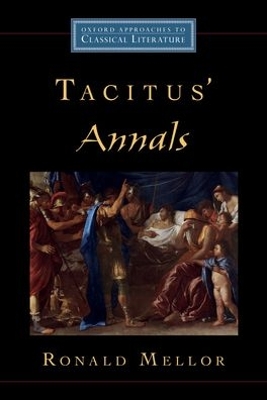Oxford Approaches to Classical Literature
1 total work
Tacitus' Annals is the central historical source for first-century C.E. Rome. It is prized by historians since it provides the best narrative material for the reigns of Tiberius, Claudius, and Nero, as well as a probing analysis of the imperial system of government. But the Annals should be seen as far more than an historical source, a mere mine for the reconstruction of the facts of Roman history. While the Annals is a superb work of history, it
has also become a central text in the western literary, political, and even philosophical traditions - from the Renaissance to the French and American revolutions, and beyond. This volume attempts to enhance the reader's understanding of how this book of history could have such a profound effect.
Chapters will address the purpose, form, and method of Roman historical writing, the ethnic biases of Tacitus, and his use of sources. Since Tacitus has been regarded as one of the first analysts of the psychopathology of political life, the book will examine the emperors, the women of the court, and the ambitious entourage of freedmen and intellectuals who surround every Roman ruler. The final chapter will examine the impact of Tacitus' Annals since their rediscovery by Boccaccio in the 14th
century.
has also become a central text in the western literary, political, and even philosophical traditions - from the Renaissance to the French and American revolutions, and beyond. This volume attempts to enhance the reader's understanding of how this book of history could have such a profound effect.
Chapters will address the purpose, form, and method of Roman historical writing, the ethnic biases of Tacitus, and his use of sources. Since Tacitus has been regarded as one of the first analysts of the psychopathology of political life, the book will examine the emperors, the women of the court, and the ambitious entourage of freedmen and intellectuals who surround every Roman ruler. The final chapter will examine the impact of Tacitus' Annals since their rediscovery by Boccaccio in the 14th
century.
